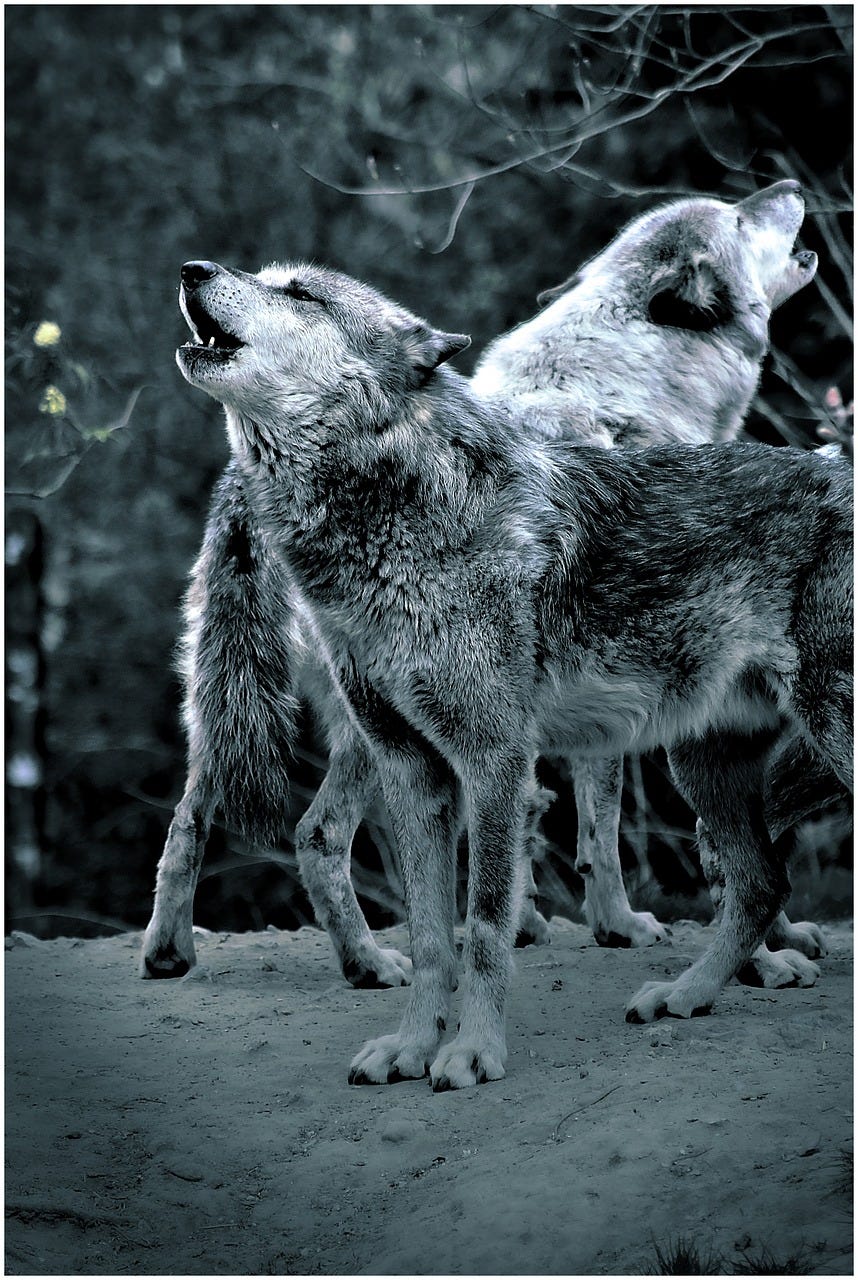In his reflection on Luther Standing Bear’s quote, "Man's heart away from nature becomes hard,” Patrick Watters shares how he lives out these words through his approach to life and in his teaching to his grandchildren and their classmates. I asked Patrick if he teaches the children about Luther Standing Bear’s quote and, if so, what was their response.
He wrote, “While I have shared Luther Standing Bear’s quote often, it has been my telling of The Two Wolves Story that has fascinated children, and they have been wise beyond their age about how one feeds their good wolf… or the bad too. All of my storytelling is purposely interactive, so I invite questions as I tell. I’ve found such participation enriches the experience for them and me too.”
It’s been years since I read The Story of the Two Wolves, so I looked online for a version to refresh my memory. I found this beautiful video of the story produced by the Anasazi Foundation.[1] It is well worth watching! There are many printed versions of the story, here’s a typical one.
One evening an old Cherokee told his grandson about a battle that goes on inside people. He said, "My son, the battle is between two "wolves" inside us all. One is Evil. It is anger, envy, jealousy, sorrow, regret, greed, arrogance, self-pity, guilt, resentment, inferiority, lies, false pride, superiority, and ego.
The other is Good. It is joy, peace, love, hope, serenity, humility, kindness, benevolence, empathy, generosity, truth, compassion and faith."
The grandson thought about it for a minute and then asked his grandfather: "Which wolf wins?"
The old Cherokee simply replied, "The one you feed.”
In a time of bullies, it’s good to be reminded that we have a choice which wolf (within and outside of us) to feed and to be aware of what feeds them - attention, panic, fear, being numb, feeling overwhelmed?
Another thought
At the end of the video, after the narrator tells The Story of the Two Wolves, he speaks about what the story has taught him. Here is a small excerpt:
I have learned that the point of life’s walk is not where or how far I move my feet but how I am moved in my heart… Happiness and life’s walking depends on how we feel about others in our hearts. We travel only as far and as high as our hearts will take us.
I listened to the narrator’s lesson several times and realized what I had taken as a beautiful and wise, yet relatively simple, story could actually be seen as much more complex. Obviously, one should feed the good wolf, the one of peace, love, hope, kindness, and not the evil wolf of anger, greed, arrogance and lies. But perhaps the question is not as straight forward as it might seem. Perhaps the underlying question is not just whether we choose to feed the evil or good wolf, but how do we determine which one we are feeding? I suspect many of us, on both sides of the divide, assume that we are feeding the good wolf and that the other side is feeding the evil one.
To be honest, given what’s happening, the evil wolf seems pretty obvious to me these days. But even if I have accurately judged the intention and actions of particular leaders, what does that say about the people who are feeding them, seeing them as the good wolf?
Rather than writing them off as ignorant, delusional, or mean-spirited can I be open hearted enough to find out what has drawn them to that wolf? I’m not sure. But I do think we need to figure out how to not see each other as enemies, to find ways to open the conversation and create a bridge toward each other.
It seems to me that if we burn all our bridges, the wolves win.
What’s Your Story?
The Story of the Two Wolves is both timeless and timely. I highly recommend watching the video and that we keep it in mind as we navigate through these dangerous days with the wolves at our doors. I suggest we all ask ourselves which wolf – by our actions, both active and passive – are we feeding?
Please consider writing a short (up to 250 words) reflection on The Story of the Two Wolves and its meaning for you in your life or for our country. The more we engage with the story - and the dilemma - and share it with others, the more we’ll learn how to feed the good wolf.
The button below will take you to the guidelines and next steps for writing and sending in your reflection. Questions? Let us know at mscribner.buildingbridges@gmail.com. We look forward to hearing from you!
[1] Here’s the link for the Anasazi Foundation and here’s how they describe their organization: Anasazi Foundation is a nonprofit 501©(3) wilderness therapy program headquartered in Mesa, Arizona. Anasazi Foundation gives young people an opportunity, through a primitive living experience and a philosophy that invites healing at the hands of nature, to effect a change of heart – a change in one's whole way of walking in the world… For more than thirty years these teachings have helped families turn their hearts to one another, begin anew, and walk in harmony in the wilderness of the world. https://www.anasazi.org





profound, thank you. i reposted the beautiful video